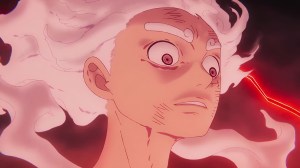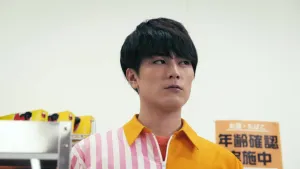Before yesterday’s bombshell that he will be stepping away from Batman 20 issues early, Tom King had spent much of the last few months finalizing Heroes in Crisis, the miniseries set at Sanctuary and revolving around the destruction of that facility by someone who apparently had a grudge against the heroes there. Instead, it turned out, the attack was an accidental one brought on by a panic attack Wally West had during therapy.
Videos by ComicBook.com
Throughout Heroes in Crisis, fans have been watching it closely, criticizing every move, and wondering whether King and artist Clay Mann can stick the landing. The Wally revelation, which came with last month’s Heroes in Crisis #8 but had been suspected for longer than that, sent a shockwave of rage through online fandom the likes of which King hadn’t seen since…
…Well, since like a year ago when the whole Batman wedding thing happened. Either way, King joined ComicBook.com go discuss his love for Wally, his plans for Heroes in Crisis, and why fans should be excited for what’s next.
There’s always a struggle struggle for readers. They get emotionally invested in characters and it’s natural to want a happy ending — but on the creative side, do you think that could ever really happen short of DC closing down tomorrow?
If some hero just walks into the sunset and is never seen again? I don’t know, I mean I feel like the only people that stay the same, having stability in all comics, are Batman’s parents — except he’s been talking with his father — and Uncle Ben, right? That’s it, that’s the list. It used to have Bucky on it, but I just saw a huge, billion-dollar movie that had a lot of Winter Soldier. So I don’t know, I think that the stories continue. That’s the whole point of our medium, is the stories continue. Gardner Fox tells something to Cary Bates and then that person tells something to William Messner-Loebs, and then he tells Mark Waid, and then he tells Geoff Johns and then he tells Josh Williamson and that’s just how the story goes. It’s a conversation between generations over what Hero X means. And I don’t think there’s any one generation there that would be like, “okay, we’re stopping here, we’re done, we’re good.” Because that generation knew that’s the whole point of this thing, is to have this conversation.

That said, you’ve made a name for yourself on The Vision and Mister Miracle, where it’s a very self contained story. Is doing that different than trying to push the limits with a character who has 50 years of history?
I mean, in The Vision, that was one of the great challenges of that book was I was like okay, we’re going to do all this continuity, but it was continuity that made no sense at all because you could see Roy Thomas fighting with John Byrne [on the page], you know? Like, as you read it. So, I purposely was like okay, all of that, those fights, that’s all part of the wonderfulness of this character, and so let’s do that. And then after it was over, Marvel’s like “what happens next?” And I was like, “whatever you want. There’s a daughter here, you do what you want, the next story is yours.” I didn’t feel ownership of that. That was just kind of that’s part of the job, you know? And I think Jim Zub’s done a great job for Vivian and her story. And the same for Mister Miracle. If someone wants to take up that story, that’s fine. My story doesn’t go away. People can read it by itself or read it with what comes next. I don’t know, I don’t have that sort of that personal dilemma where “these are my babies, don’t you dare touch them.”
I’d probably be mad if someone went into my actual story and then rewrote it and didn’t have my name on it, I don’t think that happens in comics, so.
That’s the practice in 2041.
That’s the practice in 2041. But yeah, I don’t know, I write in-continuity comics, and I love in continuity comics. This is just how we play that game; this is how we have fun.
So, it’s 2019 and it’s comics, so you’ve been getting death threats from Wally West fans and all the craziness that comes with a major change like this in the modern social media era.
I don’t think I got death threats from Wally West fans. I got a lot of hate from Wally West fans, which of course, I understand that and that makes total sense to me. The death threats were from people whose minds were a little thicker than that. It wasn’t sound, mainstream fans sad about Wally West, it was people who were crazy that I think just were taking it out on me at that moment.
Real time response to serialized, monthly storytelling is a strange animal, though. It’s hard to imagine what Brad Meltzer would have gone through trying to tell Identity Crisis with Twitter, but that is what you had said early on was a book that shared DNA with this one.
Yeah, I don’t know. I wish I could say that it’s all hunky dory and I don’t care. But I mean, I want to make everybody happy, I just don’t do it. The failure’s my fault, not yours. And if I could write some legitimately fun story that everyone loved, I’d write it in two seconds. But for me to write good, it has to be this weird, personal stuff, and the weird, personal stuff tends to scratch at these heroes, and get them to places where some people don’t want to see them go.
That said, I face this time and again, this is kind of what I do. I tear down heroes to their essential components and build them back up. I mean, to the first page in Mister Miracle, he’s bleeding out, he’s cut his own wrist. The first issue of Omega Man, Kyle Rainer gets his neck chopped open, the first issue of The Vision has his daughter being stabbed through the heart, right?
This is sort of what I do, but at the end of the day, hopefully people say “oh, he had some respect for that Mister Miracle, he wasn’t just doing it to be mean, he was actually doing it to exploit his character and to elevate the character.” Mister Miracle went through hell, but now everybody knows who Mister Miracle is, right? Same with Vision, I put him through hell. I had him almost turn into absolute evil, but it elevated that character a little bit, and now they’re doing the TV show which, you know, had something to do with my stuff. So, hopefully people will see at the end of the day, we’re doing the same thing with Wally. Wally hasn’t had a successful solo comic since, when? 2003? What I’m saying is, the idea behind this is to elevate that character. Everyone is now talking about Wally. Everyone wants to see where Wally goes next. Everyone wants Wally to get the attention that that character deserves. He’s my favorite Flash. He’s my entry into DC comics — The Flash #53 by Messner-Loebs and Larocque was my first DC comic. I love that character. I have a page above my desk of Wally from that Flash run and I think this, at the end of the day, will shine a spotlight on my character and put him at the center of the DC universe, in a place he hasn’t been for 15 years.

When the Sanctuary story you first teased at DC in DC becomes Heroes in Crisis, that word “Crisis” puts the biggest possible spotlight on it. Has that affected the way that you’ve had approach the work? Because obviously with something like Mister Miracle, for all the attention it got, it was almost uniformly positive attention because the only people who cared were the people who were enjoying it.
Yeah, no. People really hate Heroes in Crisis. [Laughs]
I feel like Heroes in Crisis and Batman and Mister Miracle all sort of tell the same story, like my second theme. The first theme was about the Iraq War, the second theme in my career is about, “what do you do after trauma?”
And the way I’m telling it in all three different comics — I think to write about trauma, sometimes it makes people feel trauma. I know that sounds wrong but I don’t know how to write about that topic without sort of getting into the muck of it.
Do you think it’s difficult to make people feel empathy with that if they don’t have personal experience — don’t know what it is?
I don’t know if that’s true. I don’t know anybody who has never made a mistake in their life. Who’s never lost control of themselves and had regrets about it. Or had a moment where they made a bad decision, and then tried to recover from it. Those seem to be fairly universal experiences and I don’t think you need to have gone to war or anything, I just think that’s part of everybody’s everyday lives. People make mistakes, you know? If we make these heroes into these sort of cartoon copies where all that makes them great is how strong they are, then they’re not strong, right? If you’re never having a moment of vulnerability, then you’re never brave. You’re just kind of existing.
I think to truly be brave and to be heroic is to have moments where you are weak, and then to overcome those moments or to face those moments, or to come back from those moments. Showing that you’re vulnerable is not a weakness. Showing that you’re vulnerable is a strength, at least to me.
It’s almost kind of like on a macro level what Geoff did with Green Lantern, changing the idea of being fearless into the idea of overcoming that fear.
Yeah. With Wally, this kid was like 14, 15, and then he got hit by lightning and then he had this incredible power, I mean the greatest power in the universe. No offense to the Green Lantern ring, but the Speed Force can be more than a ring can. So that’s coursing through him for his whole life, and then he develops that, he becomes a hero, he goes through evolution, he finds himself the perfect happy ending. He walks away with his family. And then he comes back and they’re like “hey, you’re hope, you’re rebirth, this is wonderful for you,” and he’s like “yeah, and where’s my family?” They’re like “no, no, don’t think about that. Just ignore that, you’re rebirth now, you’re hope.” I feel like it’s that moment that people come back from being overseas, and they get off and they’re home and they’re like “oh, that’s great, you’re a soldier, thank you for your service, you’re a hero now.”
And I’m like, “well you know, I kind of had some experiences…” “No, no, don’t worry about those experiences man, you’re the fucking hero, you’re the best person alive now. You’re a symbol of America.” And how am I going to live life as a symbol for America when all I can feel inside is like I’ve lost something, you know? That’s what I was trying to say with Wally. Hopefully the last issue will clarify some of that.

This all started with Harley and Booster, and you talked a lot about how much you love those characters and obviously you’ve gotten to write them a lot. How strange has it been that you spent six months elevating those characters, and now the big takeaway is like “holy s–t, Wally!”?
You go back to what I did with Booster in the beginning, and I did it in Batman. It was like “what? What did you do to Booster? You made him so terrible.” And now as you see in Heroes in Crisis, he came back from being terrible and now he’s kicking ass again. This was always about those three characters. It was a Harley story, a Wally story, and was a Booster story. As I’ve said many times before, I don’t pick the characters for my story; I give my plot to the editors and then the editors pick the characters for me. So I told them in the beginning, “this is what it’s going to be — it’s going to be about one hero who’s made a mistake and it’s going to be about the two heroes that get framed for that mistake.” And they said, “okay, it’s Booster, Harley, and Wally, those are the three characters.” I mean they’re a joy to write, I love writing them. That’s almost what I miss the most about this book is writing those two. Booster is the most fun character in comics, except maybe Hal Jordan.
—
Heroes in Crisis #9 will be in stores on May 29.








